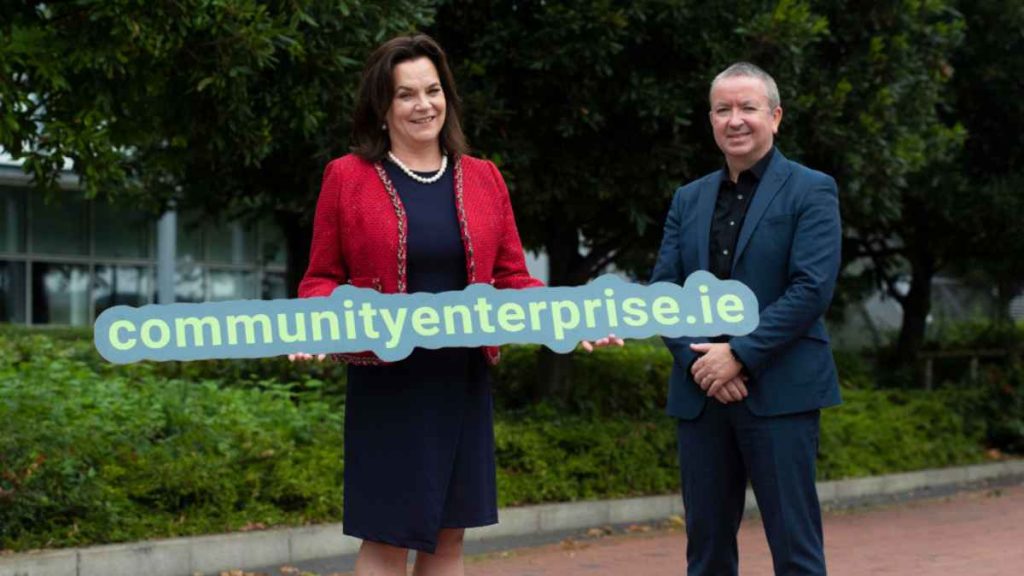Starting a new business can often feel isolating, but community enterprise centres across Ireland are changing that narrative. According to Siobhan Finn, CEO of the Community Enterprise Association Ireland (CEAI), these centres play a crucial role in supporting local entrepreneurs, enabling them to create sustainable employment and drive economic growth.
Finn emphasises the value of engaging with community enterprise centres, which offer affordable workspace and a range of support services. From addressing cybersecurity challenges to providing guidance on product development, these centres are designed to help startups thrive. In 2023, the community enterprise sector contributed a remarkable €1.8 billion to the Irish economy, employing approximately 18,600 people across various industries, including food and technology.
“The community enterprise sector is significant and deserves greater recognition from the government,” Finn asserts. She cites a successful example from a community enterprise centre in Portarlington, where a company has emerged that focuses on drone delivery services. Such success stories highlight the potential of local enterprises to make a meaningful impact.
Founded in the early 1990s, the CEAI evolved from voluntary peer-led networks supporting community enterprise centres. In 2008, it became the National Association of Community Enterprise Centres and was rebranded in 2021 as a not-for-profit limited company. The CEAI now offers vital representation, training, mentoring, and independent advice to businesses within the community enterprise sector.
These centres are not just local hubs; they are integral to national strategies aimed at fostering economic development. By providing stability and social cohesion at the community level, they create an enabling environment for high-potential startups (HPSUs) and small to medium enterprises (SMEs) across the country.
With over thirty years of experience in the not-for-profit sector, Finn leads the strategic direction of CEAI. This involves securing diverse funding sources, including European projects, to ensure the organisation’s sustainability.
A prime example of community enterprise success is the Mitchelstown Community Enterprise Centre, which has been thriving since its opening in 2012. Currently at full capacity, the centre hosts a variety of businesses, including a satellite office for jobs.ie and HATS (HR and Talent Services), a recruitment firm that has successfully scaled its operations.
Across Ireland, approximately 150 community enterprise centres support around 3,500 businesses, contributing to local employment and community vitality. Notably, Complex Nutrition in Navan employs over 350 individuals, producing milk products for a global market, while high-tech startups like Planet 21, specialising in cybersecurity, have recently gained international attention.
Finn stresses the importance of these enterprises to their local communities, noting that businesses in centres like Mitchelstown stimulate local economies by encouraging residents to shop locally and support community initiatives.
Community enterprise centres vary in focus, with some catering to specific industries like food production or the creative arts. For instance, Creative Spark in County Louth serves as a print studio and visual arts resource, providing 24-hour access to essential facilities.
Importantly, any profits generated by these centres are reinvested to benefit the local community. The rental costs for businesses are competitive, and special support is available for startups and emerging enterprises, allowing them to thrive without the burden of excessive overheads.
The first step for aspiring entrepreneurs is to consult their Local Enterprise Office (LEO), which can guide them to the most suitable enterprise centre or innovation hub. As businesses grow, many transition from home offices to community centres, creating a cycle of opportunity that fosters local entrepreneurship.
However, despite their successes, CEAI faces ongoing challenges, particularly regarding funding stability and the financial sustainability of community centres. Finn highlights the need for improved salary structures to retain experienced staff, as many skilled professionals have left the sector due to insecurity and limited career progression opportunities.
The community enterprise model requires recognition and support from the government to ensure its continued success. Finn believes that greater visibility and investment in these centres can help nurture the innovative spirit that drives Irish entrepreneurship forward.
One such success story is that of Australian herbalist Sandra O’Connell, who operates her natural products company, Raw Botanicals, from the Mitchelstown Community Enterprise Centre. O’Connell credits the centre with providing the essential support she needed to establish her business in Ireland, highlighting the friendly environment and invaluable resources available to entrepreneurs.
Overall, community enterprise centres play a vital role in supporting startups and fostering sustainable employment, making significant contributions to the local and national economy.



